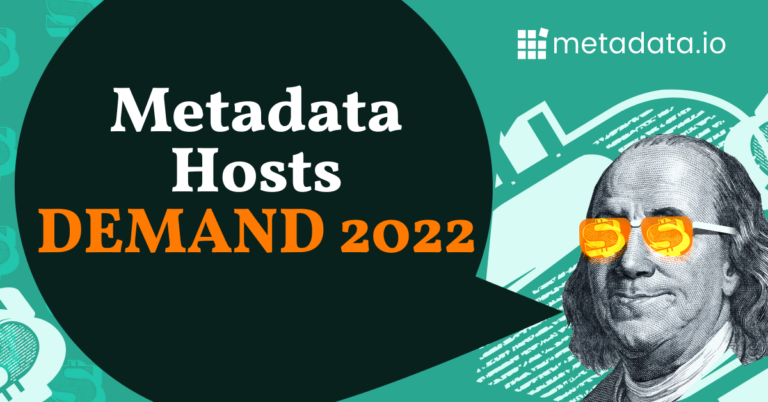Top 8 Account-Based Marketing Examples: How Leading Companies Drive ROI
When it comes to modern B2B marketing, standing out requires more than generic outreach. Account-based marketing (ABM) offers a strategic approach by focusing on specific accounts and crafting personalized campaigns to boost ROI. This comprehensive guide on account-based marketing provides further insights into this approach. This article explores effective ABM examples from leading organizations that have engaged high-value prospects and achieved significant business outcomes. Whether you’re new to ABM or looking to refine your efforts, these real-world examples provide valuable insights for crafting your own targeted campaigns.
8 Powerful Account-Based Marketing Examples That Drove Real Results
Explore these eight powerful ABM examples that drove real results.
1. How LiveRamp Achieved $50 Million with a Multi-Touch ABM Campaign
LiveRamp’s account-based marketing campaign is notable for its focused approach to Named Account Marketing by targeting just 15 Fortune 500 accounts. Using the Lattice Predictive Insights Platform, they identified their highest-potential enterprise prospects and executed a sophisticated five-touch strategy.
Their multi-touch campaign included:
- Targeted display advertising to build awareness
- Strategic lead capture through gated content
- Personalized marketing email sequences
- Coordinated SDR outreach calls
- Direct mail with customized gifts
The campaign’s precise execution yielded remarkable results. LiveRamp generated over $50 million in annual revenue from these 15 target accounts, achieving a 33% conversion rate within just four weeks. Over two years, they saw their customer lifetime value multiply by 25 times.
LiveRamp’s evolution toward account-based experiences (ABX), maintaining consistent personalization across all touchpoints, was key to their success. Their strategic use of predictive insights for account selection, combined with orchestrated marketing efforts, created a compelling engagement model for their enterprise targets.
2. How GumGum Used a Creative Comic Book to Engage T-Mobile’s CEO
GumGum showcased hyper-personalization with an ingenious ABM campaign targeting T-Mobile’s CEO, John Legere. Upon learning that Legere was an avid Batman fan, GumGum created a custom comic book titled “T-Man and Gums,” featuring Legere as the superhero and their company as his sidekick.
The comic book wove GumGum’s computer vision technology benefits into an engaging narrative that resonated with Legere’s interests. By positioning T-Mobile’s CEO as the protagonist, they struck a balance between entertainment and subtle product promotion.
The campaign was highly successful. Legere shared the comic on Twitter, significantly boosting GumGum’s brand visibility, and it secured them the T-Mobile account. GumGum’s approach highlights how understanding key decision-makers and crafting personalized content can create meaningful business relationships.
3. How DocuSign Used Dynamic Content to Triple Homepage Conversions
DocuSign enhanced their ABM strategy by implementing dynamic content targeting 450 enterprise accounts. They created industry-specific homepage experiences that adapted based on the visitor’s company profile.
Their implementation delivered highly relevant content for different industries and buying stages. When target accounts visited their website, they saw customized messaging, industry-specific case studies, and testimonials that addressed their unique challenges.
DocuSign complemented their dynamic homepage with targeted advertising campaigns, ensuring consistent messaging across all touchpoints. Each ad featured visuals and copy that resonated with the target account’s industry.
Their approach yielded impressive results. According to Cognism’s research, DocuSign saw a 300% increase in page views and a 22% increase in sales. As reported by CXL, they tripled their homepage conversion rates through this personalized strategy.
4. How Auth0’s Structured ABM Rollout Built a $3 Million Pipeline in Six Weeks
Auth0 adopted a calculated approach by starting with a pilot ABM program. This method allowed them to test and refine their processes before scaling up.
The company leveraged marketing automation platforms to gain insights into account engagement patterns. This technology-driven approach enabled them to track how target accounts interacted with their content and campaigns.
The results were significant—Auth0 built a $3 million pipeline within the first six weeks of their pilot program. Their success demonstrates how a well-planned, data-driven ABM pilot can generate substantial results when executed with the right tools and strategy.
5. How Snowflake Used Personalized Content to Build Credibility
Snowflake, recognizing the rise of ABM, focused on content-driven ABM by creating a library of high-quality materials designed for target account engagement. They prioritized delivering educational content tailored to each account’s position in their lifecycle.
Their strategy involved studying target accounts to understand their specific needs. This research informed personalized marketing messages and content experiences. For example, when targeting Saxo Bank, they developed custom advertisements addressing prospects by name and speaking directly to their use cases.
Snowflake’s commitment to building credibility through education helped establish them as a trusted advisor. By aligning content with the account’s lifecycle stage, they provided relevant value at each interaction.
6. How O2 Leveraged a Value-First Strategy to Achieve a 67.5% Conversion Rate
O2 led with value in their ABM campaign by creating personalized reports for over 2,000 employees at target companies. Instead of a sales pitch, they delivered immediate value by showing each prospect specific cost savings and revenue opportunities.
The reports were highly customized, analyzing each company’s situation and providing actionable financial insights. This approach positioned O2 as a trusted advisor.
They achieved a 67.5% conversion rate, attributed to three factors: providing tangible value upfront, demonstrating a deep understanding of each company’s needs, and focusing on concrete financial benefits.
7. How Cognism’s Cupcake Campaign Achieved an 80% Response Rate
Cognism employed an innovative cupcake campaign, leveraging multiple teams for maximum impact. Using Reachdesk, they coordinated efforts across their organization.
The campaign involved:
- SDRs initiating conversations through personalized notes
- Sales representatives delivering targeted content and gift boxes to accelerate deals
- The customer success team deploying personalized cupcake deliveries for unresponsive leads
Their multi-touch strategy achieved an 80% response rate, far exceeding their initial 20% target. The campaign highlighted how combining personalized direct mail with coordinated team efforts can significantly improve engagement rates in ABM initiatives.
8. How RollWorks Boosted Close Rates with a Multi-Channel ABM Approach
RollWorks executed an integrated multi-channel ABM campaign leveraging several touchpoints. Their approach combined personalized landing pages, targeted email campaigns, retargeting ads, and direct mail initiatives.
A standout feature was their use of “Door opener kits”—personalized content packages sent to prospects who hadn’t progressed in their buyer journey for 35 days. This offline component complemented their digital efforts.
Their approach yielded significant results. RollWorks achieved a threefold increase in appointment rates and a 15% boost in close rates. Their direct mail strategy targeting stalled prospects achieved a 41% closing rate, demonstrating the impact of combining offline and online channels in ABM.
Key Takeaways for Implementing Successful ABM Campaigns
To create high-performing ABM campaigns like these examples, focus on these essential elements:
- Start with precise account selection and deep personalization. LiveRamp targeted just 15 Fortune 500 companies, achieving a 33% conversion rate in four weeks. Personalization should go beyond company names—take inspiration from GumGum’s approach of researching individual executives’ interests.
- Deploy multi-channel campaigns combining digital and physical touchpoints. DocuSign’s personalized display ads and industry-specific content led to a 300% increase in page views and 22% growth in their sales pipeline.
- Leverage advanced technologies to enhance ABM efforts. Metadata’s use of AI and machine learning allowed for dynamic targeting and continuous optimization, significantly improving pipeline velocity. Consider redefining ABM with innovative strategies and tools to stay ahead.
- Ensure tight alignment between sales and marketing teams. Coordinated efforts, supported by data-driven demand generation, are crucial for maintaining consistent messaging and follow-through, as demonstrated by several successful ABM campaigns.
- Measure results systematically and optimize continuously. Tracking key ABM metrics allows for data-driven adjustments to improve campaign performance.
- Don’t shy away from creative, attention-grabbing tactics. Bold approaches like GumGum’s custom comic book or Cognism’s cupcake deliveries can break through the noise when aligned with target accounts’ interests.
Unlock ABM Success with Metadata’s AI-Powered Platform
Implementing successful ABM campaigns requires strategic planning, deep personalization, and a willingness to innovate. While these leading companies achieved impressive results, many organizations face challenges in orchestrating complex multi-channel campaigns and maintaining consistent personalization at scale.
This is where Metadata’s AI-powered ABM platform comes into play. By automating campaign execution and leveraging machine learning for continuous optimization, Metadata helps B2B marketers streamline their ABM efforts. Embracing AI in marketing enables you to target high-value accounts more effectively and accelerate pipeline velocity.
Ready to elevate your ABM strategy? Discover how Metadata’s innovative solutions can help you overcome common hurdles and drive real ROI from your marketing campaigns. Book an intro today!


